- Home
- Jack London
The Strength of the Strong Page 3
The Strength of the Strong Read online
Page 3
A little later, in another department of the Wilmax Cannery, lumping as a fruit-distributor among the women, he essayed to carry two boxes of fruit at a time, and was promptly reproached by the other fruit-lumpers. It was palpable malingering; but he was there, he decided, not to change conditions, but to observe. So he lumped one box thereafter, and so well did he study the art of shirking that he wrote a special chapter on it, with the last several paragraphs devoted to tentative generalizations.
In those six months he worked at many jobs and developed into a very good imitation of a genuine worker. He was a natural linguist, and he kept notebooks, making a scientific study of the workers’ slang or argot, until he could talk quite intelligibly. This language also enabled him more intimately to follow their mental processes, and thereby to gather much data for a projected chapter in some future book which he planned to entitle Synthesis of Working-Class Psychology.
Before he arose to the surface from that first plunge into the underworld he discovered that he was a good actor and demonstrated the plasticity of his nature. He was himself astonished at his own fluidity. Once having mastered the language and conquered numerous fastidious qualms, he found that he could flow into any nook of working-class life and fit it so snugly as to feel comfortably at home. As he said, in the preface to his second book, The Toiler, he endeavoured really to know the working people, and the only possible way to achieve this was to work beside them, eat their food, sleep in their beds, be amused with their amusements, think their thoughts, and feel their feeling.
He was not a deep thinker. He had no faith in new theories. All his norms and criteria were conventional. His Thesis on the French Revolution was noteworthy in college annals, not merely for its painstaking and voluminous accuracy, but for the fact that it was the dryest, deadest, most formal, and most orthodox screed ever written on the subject. He was a very reserved man, and his natural inhibition was large in quantity and steel-like in quality. He had but few friends. He was too undemonstrative, too frigid. He had no vices, nor had any one ever discovered any temptations. Tobacco he detested, beer he abhorred, and he was never known to drink anything stronger than an occasional light wine at dinner.
When a freshman he had been baptized “Ice-Box” by his warmer-blooded fellows. As a member of the faculty he was known as “Cold-Storage.” He had but one grief, and that was “Freddie.” He had earned it when he played full-back in the ‘Varsity eleven, and his formal soul had never succeeded in living it down. “Freddie” he would ever be, except officially, and through nightmare vistas he looked into a future when his world would speak of him as “Old Freddie.”
For he was very young to be a doctor of sociology, only twenty-seven, and he looked younger. In appearance and atmosphere he was a strapping big college man, smooth-faced and easy-mannered, clean and simple and wholesome, with a known record of being a splendid athlete and an implied vast possession of cold culture of the inhibited sort. He never talked shop out of class and committee rooms, except later on, when his books showered him with distasteful public notice and he yielded to the extent of reading occasional papers before certain literary and economic societies.
He did everything right-too right; and in dress and comportment was inevitably correct. Not that he was a dandy. Far from it. He was a college man, in dress and carriage as like as a pea to the type that of late years is being so generously turned out of our institutions of higher learning. His handshake was satisfyingly strong and stiff. His blue eyes were coldly blue and convincingly sincere. His voice, firm and masculine, clean and crisp of enunciation, was pleasant to the ear. The one drawback to Freddie Drummond was his inhibition. He never unbent. In his football days, the higher the tension of the game, the cooler he grew. He was noted as a boxer, but he was regarded as an automaton, with the inhuman precision of a machine judging distance and timing blows, guarding, blocking, and stalling. He was rarely punished himself, while he rarely punished an opponent. He was too clever and too controlled to permit himself to put a pound more weight into a punch than he intended. With him it was a matter of exercise. It kept him fit.
As time went by, Freddie Drummond found himself more frequently crossing the Slot and losing himself in South of Market. His summer and winter holidays were spent there, and, whether it was a week or a week-end, he found the time spent there to be valuable and enjoyable. And there was so much material to be gathered. His third book, Mass and Master, became a text-book in the American universities; and almost before he knew it, he was at work on a fourth one, The Fallacy of the Inefficient.
Somewhere in his make-up there was a strange twist or quirk. Perhaps it was a recoil from his environment and training, or from the tempered seed of his ancestors, who had been book-men generation preceding generation; but at any rate, he found enjoyment in being down in the working-class world. In his own world he was “Cold-Storage,” but down below he was “Big” Bill Totts, who could drink and smoke, and slang and fight, and be an all-round favourite. Everybody liked Bill, and more than one working girl made love to him. At first he had been merely a good actor, but as time went on, simulation became second nature. He no longer played a part, and he loved sausages, sausages and bacon, than which, in his own proper sphere, there was nothing more loathsome in the way of food.
From doing the thing for the need’s sake, he came to doing the thing for the thing’s sake. He found himself regretting as the time drew near for him to go back to his lecture-room and his inhibition. And he often found himself waiting with anticipation for the dreamy time to pass when he could cross the Slot and cut loose and play the devil. He was not wicked, but as “Big” Bill Totts he did a myriad things that Freddie Drummond would never have been permitted to do. Moreover, Freddie Drummond never would have wanted to do them. That was the strangest part of his discovery. Freddie Drummond and Bill Totts were two totally different creatures. The desires and tastes and impulses of each ran counter to the other’s. Bill Totts could shirk at a job with clear conscience, while Freddie Drummond condemned shirking as vicious, criminal, and un-American, and devoted whole chapters to condemnation of the vice. Freddie Drummond did not care for dancing, but Bill Totts never missed the nights at the various dancing clubs, such as The Magnolia, The Western Star, and The Elite; while he won a massive silver cup, standing thirty inches high, for being the best-sustained character at the Butchers and Meat Workers’ annual grand masked ball. And Bill Totts liked the girls and the girls liked him, while Freddie Drummond enjoyed playing the ascetic in this particular, was open in his opposition to equal suffrage, and cynically bitter in his secret condemnation of coeducation.
Freddie Drummond changed his manners with his dress, and without effort. When he entered the obscure little room used for his transformation scenes, he carried himself just a bit too stiffly. He was too erect, his shoulders were an inch too far back, while his face was grave, almost harsh, and practically expressionless. But when he emerged in Bill Totts’ clothes he was another creature. Bill Totts did not slouch, but somehow his whole form limbered up and became graceful. The very sound of the voice was changed, and the laugh was loud and hearty, while loose speech and an occasional oath were as a matter of course on his lips. Also, Bill Totts was a trifle inclined to late hours, and at times, in saloons, to be good-naturedly bellicose with other workmen. Then, too, at Sunday picnics or when coming home from the show, either arm betrayed a practised familiarity in stealing around girls’ waists, while he displayed a wit keen and delightful in the flirtatious badinage that was expected of a good fellow in his class.
So thoroughly was Bill Totts himself, so thoroughly a workman, a genuine denizen of South of the Slot, that he was as class-conscious as the average of his kind, and his hatred for a scab even exceeded that of the average loyal union man. During the Water Front Strike, Freddie Drummond was somehow able to stand apart from the unique combination, and, coldly critical, watch Bill Totts hilariously slug scab longshoremen. For Bill Totts was a dues-paying membe
r of the Longshoremen Union and had a right to be indignant with the usurpers of his job. “Big” Bill Totts was so very big, and so very able, that it was “Big” Bill to the front when trouble was brewing. From acting outraged feelings, Freddie Drummond, in the role of his other self, came to experience genuine outrage, and it was only when he returned to the classic atmosphere of the university that he was able, sanely and conservatively, to generalize upon his underworld experiences and put them down on paper as a trained sociologist should. That Bill Totts lacked the perspective to raise him above class-consciousness Freddie Drummond clearly saw. But Bill Totts could not see it. When he saw a scab taking his job away, he saw red at the same time, and little else did he see. It was Freddie Drummond, irreproachably clothed and comported, seated at his study desk or facing his class in Sociology 17, who saw Bill Totts, and all around Bill Totts, and all around the whole scab and union-labour problem and its relation to the economic welfare of the United States in the struggle for the world market. Bill Totts really wasn’t able to see beyond the next meal and the prize-fight the following night at the Gaiety Athletic Club.
It was while gathering material for Women and Work that Freddie received his first warning of the danger he was in. He was too successful at living in both worlds. This strange dualism he had developed was after all very unstable, and, as he sat in his study and meditated, he saw that it could not endure. It was really a transition stage, and if he persisted he saw that he would inevitably have to drop one world or the other. He could not continue in both. And as he looked at the row of volumes that graced the upper shelf of his revolving book-case, his volumes, beginning with his Thesis and ending with Women and Work, he decided that that was the world he would hold to and stick by. Bill Totts had served his purpose, but he had become a too dangerous accomplice. Bill Totts would have to cease.
Freddie Drummond’s fright was due to Mary Condon, President of the International Glove Workers’ Union No. 974. He had seen her, first, from the spectators’ gallery, at the annual convention of the Northwest Federation of Labour, and he had seen her through Bill Totts’ eyes, and that individual had been most favourably impressed by her. She was not Freddie Drummond’s sort at all. What if she were a royal-bodied woman, graceful and sinewy as a panther, with amazing black eyes that could fill with fire or laughter-love, as the mood might dictate? He detested women with a too exuberant vitality and a lack of… well, of inhibition. Freddie Drummond accepted the doctrine of evolution because it was quite universally accepted by college men, and he flatly believed that man had climbed up the ladder of life out of the weltering muck and mess of lower and monstrous organic things. But he was a trifle ashamed of this genealogy, and preferred not to think of it. Wherefore, probably, he practised his iron inhibition and preached it to others, and preferred women of his own type, who could shake free of this bestial and regrettable ancestral line and by discipline and control emphasize the wideness of the gulf that separated them from what their dim forbears had been.
Bill Totts had none of these considerations. He had liked Mary Condon from the moment his eyes first rested on her in the convention hall, and he had made it a point, then and there, to find out who she was. The next time he met her, and quite by accident, was when he was driving an express waggon for Pat Morrissey. It was in a lodging-house in Mission Street, where he had been called to take a trunk into storage. The landlady’s daughter had called him and led him to the little bedroom, the occupant of which, a glove-maker, had just been removed to hospital. But Bill did not know this. He stooped, up-ended the trunk, which was a large one, got it on his shoulder, and struggled to his feet with his back toward the open door. At that moment he heard a woman’s voice.
“Belong to the union?” was the question asked.
“Aw, what’s it to you?” he retorted. “Run along now, an’ git outa my way. I wanta turn round.”
The next he know, big as he was, he was whirled half around and sent reeling backward, the trunk overbalancing him, till he fetched up with a crash against the wall. He started to swear, but at the same instant found himself looking into Mary Condon’s flashing, angry eyes.
“Of course I b’long to the union,” he said. “I was only kiddin’ you.”
“Where’s your card?” she demanded in businesslike tones.
“In my pocket. But I can’t git it out now. This trunk’s too damn heavy. Come on down to the waggon an’ I’ll show it to you.”
“Put that trunk down,” was the command.
“What for? I got a card, I’m tellin’ you.”
“Put it down, that’s all. No scab’s going to handle that trunk. You ought to be ashamed of yourself, you big coward, scabbing on honest men. Why don’t you join the union and be a man?”
Mary Condon’s colour had left her face, and it was apparent that she was in a rage.
“To think of a big man like you turning traitor to his class. I suppose you’re aching to join the militia for a chance to shoot down union drivers the next strike. You may belong to the militia already, for that matter. You’re the sort-”
“Hold on, now, that’s too much!” Bill dropped the trunk to the floor with a bang, straightened up, and thrust his hand into his inside coat pocket. “I told you I was only kiddin’. There, look at that.”
It was a union card properly enough.
“All right, take it along,” Mary Condon said. “And the next time don’t kid.”
Her face relaxed as she noticed the ease with which he got the big trunk to his shoulder, and her eyes glowed as they glanced over the graceful massiveness of the man. But Bill did not see that. He was too busy with the trunk.
The next time he saw Mary Condon was during the Laundry Strike. The Laundry Workers, but recently organized, were green at the business, and had petitioned Mary Condon to engineer the strike. Freddie Drummond had had an inkling of what was coming, and had sent Bill Totts to join the union and investigate. Bill’s job was in the wash-room, and the men had been called out first, that morning, in order to stiffen the courage of the girls; and Bill chanced to be near the door to the mangle-room when Mary Condon started to enter. The superintendent, who was both large and stout, barred her way. He wasn’t going to have his girls called out, and he’d teach her a lesson to mind her own business. And as Mary tried to squeeze past him he thrust her back with a fat hand on her shoulder. She glanced around and saw Bill.
“Here you, Mr. Totts,” she called. “Lend a hand. I want to get in.”
Bill experienced a startle of warm surprise. She had remembered his name from his union card. The next moment the superintendent had been plucked from the doorway raving about rights under the law, and the girls were deserting their machines. During the rest of that short and successful strike, Bill constituted himself Mary Condon’s henchman and messenger, and when it was over returned to the University to be Freddie Drummond and to wonder what Bill Totts could see in such a woman.
Freddie Drummond was entirely safe, but Bill had fallen in love. There was no getting away from the fact of it, and it was this fact that had given Freddie Drummond his warning. Well, he had done his work, and his adventures could cease. There was no need for him to cross the Slot again. All but the last three chapters of his latest, Labour Tactics and Strategy, was finished, and he had sufficient material on hand adequately to supply those chapters.
Another conclusion he arrived at, was that in order to sheet-anchor himself as Freddie Drummond, closer ties and relations in his own social nook were necessary. It was time that he was married, anyway, and he was fully aware that if Freddie Drummond didn’t get married, Bill Totts assuredly would, and the complications were too awful to contemplate. And so, enters Catherine Van Vorst. She was a college woman herself, and her father, the one wealthy member of the faculty, was the head of the Philosophy Department as well. It would be a wise marriage from every standpoint, Freddie Drummond concluded when the engagement was consummated and announced. In appearance cold and reserved, ar
istocratic and wholesomely conservative, Catherine Van Vorst, though warm in her way, possessed an inhibition equal to Drummond’s.
All seemed well with him, but Freddie Drummond could not quite shake off the call of the underworld, the lure of the free and open, of the unhampered, irresponsible life South of the Slot. As the time of his marriage approached, he felt that he had indeed sowed wild oats, and he felt, moreover, what a good thing it would be if he could have but one wild fling more, play the good fellow and the wastrel one last time, ere he settled down to grey lecture-rooms and sober matrimony. And, further to tempt him, the very last chapter of Labour Tactics and Strategy remained unwritten for lack of a trifle more of essential data which he had neglected to gather.
So Freddie Drummond went down for the last time as Bill Totts, got his data, and, unfortunately, encountered Mary Condon. Once more installed in his study, it was not a pleasant thing to look back upon. It made his warning doubly imperative. Bill Totts had behaved abominably. Not only had he met Mary Condon at the Central Labour Council, but he had stopped at a chop-house with her, on the way home, and treated her to oysters. And before they parted at her door, his arms had been about her, and he had kissed her on the lips and kissed her repeatedly. And her last words in his ear, words uttered softly with a catchy sob in the throat that was nothing more nor less than a love cry, were “Bill… dear, dear Bill.”
Freddie Drummond shuddered at the recollection. He saw the pit yawning for him. He was not by nature a polygamist, and he was appalled at the possibilities of the situation. It would have to be put an end to, and it would end in one only of two ways: either he must become wholly Bill Totts and be married to Mary Condon, or he must remain wholly Freddie Drummond and be married to Catherine Van Vorst. Otherwise, his conduct would be beneath contempt and horrible.

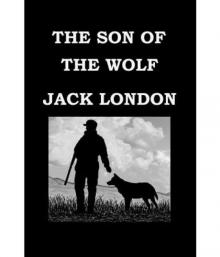 The Son of the Wolf
The Son of the Wolf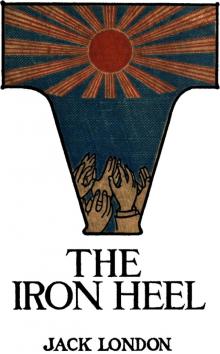 The Iron Heel
The Iron Heel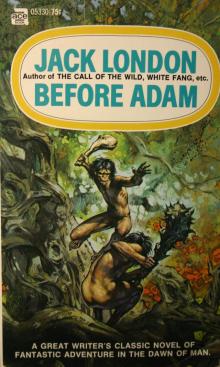 Before Adam
Before Adam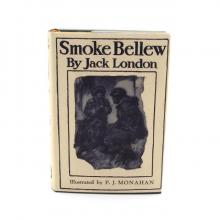 Smoke Bellew
Smoke Bellew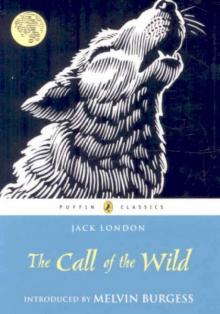 The Call of the Wild
The Call of the Wild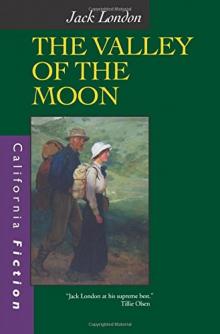 The Valley of the Moon Jack London
The Valley of the Moon Jack London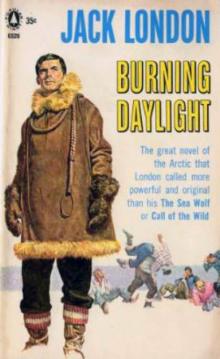 Burning Daylight
Burning Daylight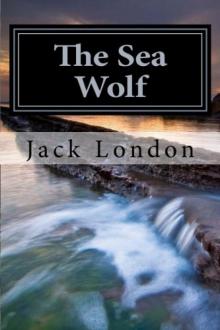 The Sea Wolf
The Sea Wolf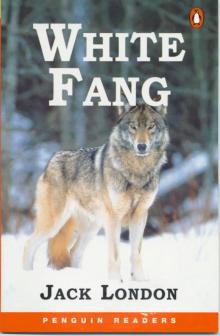 White Fang
White Fang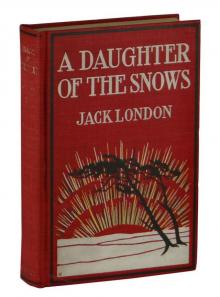 A Daughter of the Snows
A Daughter of the Snows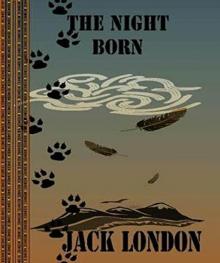 The Night-Born
The Night-Born A Son Of The Sun
A Son Of The Sun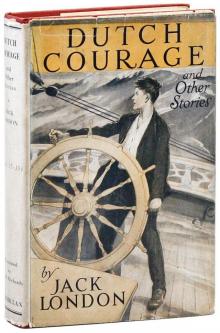 Dutch Courage and Other Stories
Dutch Courage and Other Stories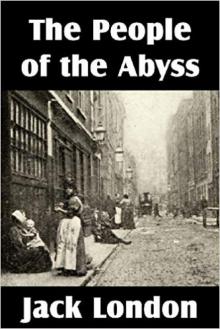 The People of the Abyss
The People of the Abyss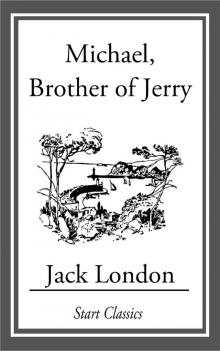 Michael, Brother of Jerry
Michael, Brother of Jerry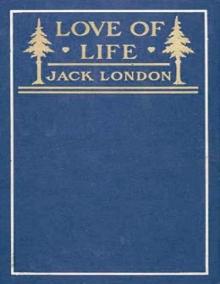 Love of Life, and Other Stories
Love of Life, and Other Stories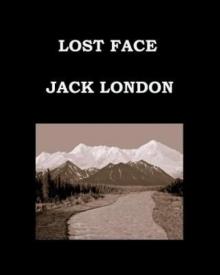 Lost Face
Lost Face The Road
The Road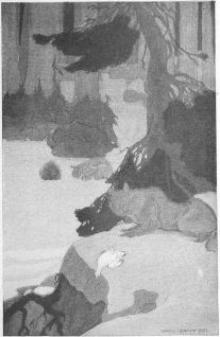 Love of Life
Love of Life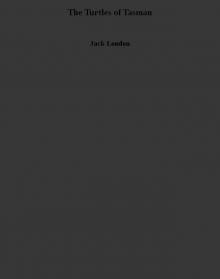 The Turtles of Tasman
The Turtles of Tasman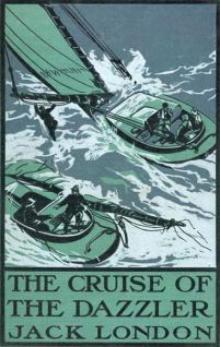 The Cruise of The Dazzler
The Cruise of The Dazzler The Heathen
The Heathen The Scab
The Scab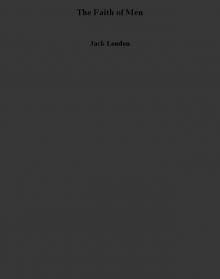 The Faith of Men
The Faith of Men Adventure
Adventure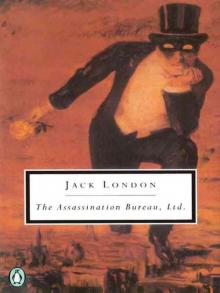 The Assassination Bureau, Ltd.
The Assassination Bureau, Ltd.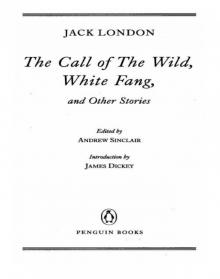 The Call of the Wild, White Fang, and Other Stories
The Call of the Wild, White Fang, and Other Stories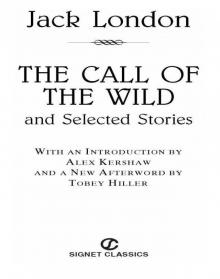 The Call of the Wild and Selected Stories
The Call of the Wild and Selected Stories Jerry of the Islands
Jerry of the Islands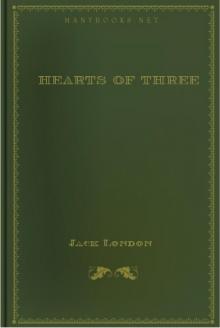 Hearts of Three
Hearts of Three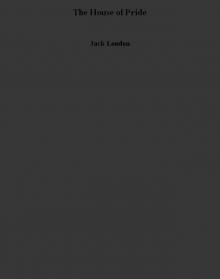 The House of Pride
The House of Pride Moon-Face and Other Stories
Moon-Face and Other Stories Children of the Frost
Children of the Frost South Sea Tales
South Sea Tales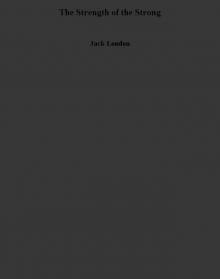 The Strength of the Strong
The Strength of the Strong The Jacket (The Star-Rover)
The Jacket (The Star-Rover)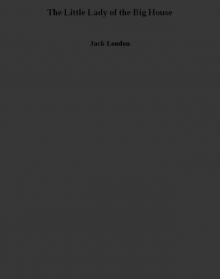 The Little Lady of the Big House
The Little Lady of the Big House John Barleycorn
John Barleycorn ADaugter of Snows
ADaugter of Snows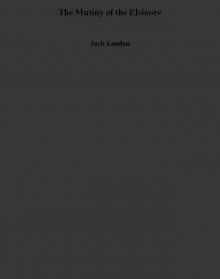 The Mutiny of the Elsinore
The Mutiny of the Elsinore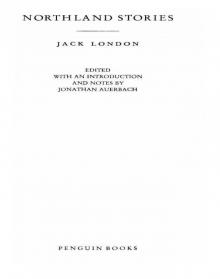 Northland Stories
Northland Stories Tales of the Fish Patrol
Tales of the Fish Patrol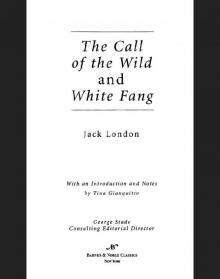 Call of the Wild and White Fang (Barnes & Noble Classics Series)
Call of the Wild and White Fang (Barnes & Noble Classics Series)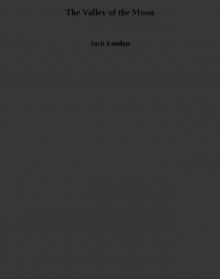 The Valley of the Moon
The Valley of the Moon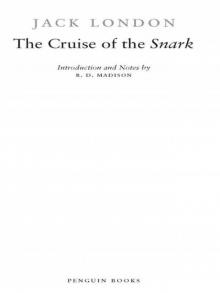 The Cruise of the Snark
The Cruise of the Snark The Game
The Game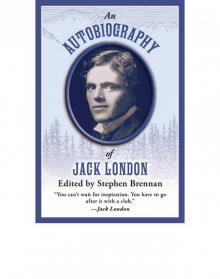 An Autobiography of Jack London
An Autobiography of Jack London